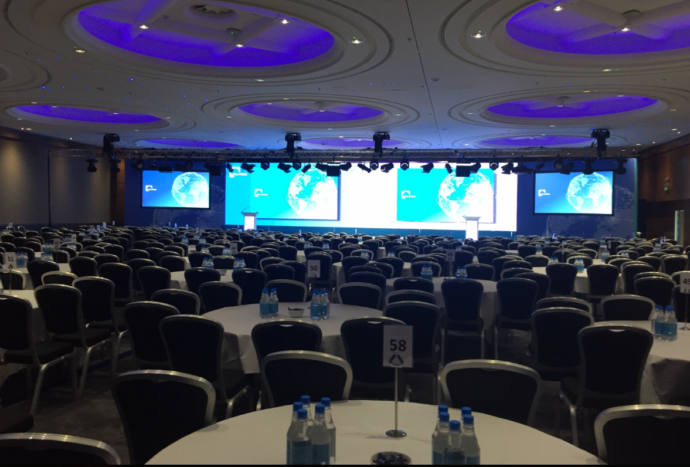
The idea that speakers are competing for a few speaking assignments and that there are only a few speaking jobs that speakers compete for is just crazy.
Today I am speaking for 600 lawyers from all over the world who have gathered for a conference in London. They flew people in from 71 cities in 51 countries and there were just 3 external speakers at the event.
At first glance it might look like it would be very, very, very difficult to get a job like that since there are tens of thousands of speakers in the world and this company obviously did not care where the speaker flew in from (since they flew me in from Singapore), and thus all those speakers were competing for these three speaking slots.
But this mindset of scarcity is wrong.
Yes, there are a lot of speakers in the world and yes, only one or two speakers get to speak at most conferences – BUT – and that is a huge “but” – there are tens of thousands of conferences around the world every month looking for speakers whom they can pay to come and speak.
A few weeks ago I listened to Niels Brabandt, an international speaker, who put things into perspective. Niels was commissioned by a pharmaceutical company to study how that company worked with speakers.
In this survey they discovered that this company alone used 42 000 (!) speakers every year for all their conferences around the world. And they paid for every single one of those speakers.
Let me say that again: ONE company paid for speakers 42 000 (!) times in ONE year.
Now imagine how many big, global companies there are in the world. And how many government organisations, and small and medium size companies, and events and conference organisers, etc etc all looking for speakers.
Every time I hear someone say that there are not so many speaking opportunities around I ask them to go down to any big convention centre, or any big conference hotel and look at the agenda for the day to see what conferences are going on right at that very moment. Then go back tomorrow and see who is there. And next week again. And so on …
There is an abundance of speaking opportunities all over the world and if you just realise that and stop having a “scarcity mindset” you will realise that the only thing you need to do is to go out and network, build relationships, talk to people and get them to know about you and your amazing speech.
The reason you are not getting enough speaking assignments is not because there are so few opportunities to speak, nor is it because there are too many other speakers competing with you – it’s because the people booking speakers do not know about you. (Or, if they do know about you, but don’t book you, you should consider improving your speech since there obviously might be a reason for why they don’t book you – and that reason is most likely that your speech is not good enough…)
Speakers complaining about the difficulty of getting speaking gigs reminds me of how shy boys will complain that there are not enough girls out there to get a date … Trust me, there are an abundance of girls out there, you just need to go out there and start talking to them.
And as a speaker you need to get out there and start connecting with the tens of thousands of people around the world who book speakers.
If one company alone is booking 42 000 speakers a year there must be million and millions of paid speaking opportunities in the world every year. Go get your fair share of them.
(Picture from my speech in London just before 600 lawyers from around the world entered the ballroom, but this picture with empty chairs is here to symbolise all the ballrooms around the world that right now is in need of speakers.)

